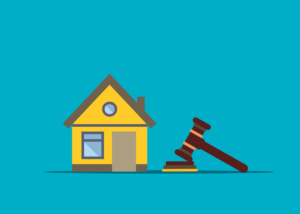Dear Liz: Do you have any general advice for choosing a tax preparer? My financial advisor has recommended switching my 403(b) contributions over to Roth 403(b) with the same investment plan. I am worried that this could put us at risk for a higher tax bracket currently.
Retirement
This week’s money news
 This week’s top story: How to get cheap car insurance. In other news: 5 things to ponder before you pack, August mortgage rates could continue long decline, and Americans spending less time, more money on shopping.
This week’s top story: How to get cheap car insurance. In other news: 5 things to ponder before you pack, August mortgage rates could continue long decline, and Americans spending less time, more money on shopping.
How to Get Cheap Car Insurance
Insurance rates may be going up, but considering some simple steps could help you get cheap car insurance.
Moving in Retirement? 5 Things to Ponder Before You Pack
From available doctors to income tax rates, here’s what to think about before deciding to live elsewhere.
August Mortgage Rates Could Continue Long Decline
Mortgage rates are likely to keep falling in August because inflation is slowing down.
Data: Americans Spending Less Time, More Money on Shopping
New data from the Bureau of Labor Statistics reveals fewer people are shopping on any given day than they were 20 years ago, and those who do are spending less time on the task.
Q&A: When temptation to spend an inheritance strikes, what’s the right move?
Dear Liz: My brother is 54 and has always worked low-wage jobs. He owns a condo thanks to the help of our parents, and his monthly expenses are very low. He’s in a stable position. He does not have any retirement savings or really any other savings to speak of. Recently, he came into an inheritance of $62,000. He has asked my sister and I to help him make that grow and be secure until he retires and chooses to draw on it. What is the best way to help him grow this money in a safe way? We’d like it to be somewhat secured as we all are aware that the temptation to spend it now is strong.
Answer: The first step in investing is understanding your goal for the money and your timeline (how long until you may need the cash).
Your brother likely has at least two goals: an emergency fund and retirement savings.
Financial planners typically recommend an emergency fund equal to three to six months of expenses. A smaller amount can work for people with a lot of other resources, such as stocks they can sell, lines of credit they can borrow against or generous relatives who are willing to help. A larger amount might be smart for people with fewer resources or who might be out of work for extended periods.
Emergency funds need to be accessible, so the money should be in a safe, liquid place such as a bank account. To make the cash less tempting, your brother could consider opening a savings account with an online bank. These banks typically have no minimums and no fees, plus they pay a higher interest rate than their brick-and-mortar kin. Transferring the money to his checking account would typically take a few days, making it less easy to spend on impulse. Another option is to buy certificates of deposit to tie the money up for a set period of time. He can break into the CDs in an emergency but would have to forfeit some interest.
He can take more risk with his retirement funds, as he is likely at least a decade away from retirement. One option is to invest in a low-cost target date retirement fund, which gradually gets more conservative as the retirement date approaches.
Your brother can contribute up to $7,000 this year to an IRA or a Roth IRA. A Roth IRA may be the better option, since he’s unlikely to get much tax benefit from an IRA’s deductible contribution and Roth IRAs don’t have minimum distribution requirements.
He doesn’t have to limit his retirement savings to that annual contribution, however. He could consider investing more with a regular brokerage account and just mentally earmarking it for retirement.
Q&A: Managing mortgage debt in retirement
Dear Liz: My husband and I are Gen Xers who are renting. We have enough cash from the sale of our last home to make a small down payment on another. If we moved to a more affordable community, we could manage the payments, but it would still be a stretch. That scenario would not have bothered me 10 years ago, but now I’m close to 50. Is it a good idea to take on a mortgage at this point? What is the best way to ensure I can afford to keep the roof over my head when I can no longer work full time?
Answer: Having a mortgage in retirement used to be uncommon, but that’s no longer the case. The Joint Center for Housing Studies of Harvard University found 41% of homeowners 65 and older had a mortgage in 2022, compared with 24% in 1989. Among homeowners 80 and over, the percentage with mortgages rose from 3% to 31%.
The amounts owed have skyrocketed as well. Median mortgage debt for those 65 and older rose more than 400%, from $21,000 to $110,000 (both figures are in 2022 dollars). Median mortgage debt for those 80 and over increased more than 750%, from $9,000 to $79,000.
Mortgage debt doesn’t have to be a crisis if you can afford the home and the payments don’t cause you to run through your retirement savings too quickly. In fact, some retirees are better off hanging on to their loans. It may not make sense to prepay a 3% mortgage when you can earn 5% on a certificate of deposit, for example. Paying off a mortgage early also could leave you “house rich and cash poor,” with not enough savings to deal with emergencies and later-life expenses.
But the key is affordability. A mortgage that’s a stretch now might become easier to afford if your income rises, which was almost a given when you were younger. Now, however, you’re approaching the “dangerous decade” of your 50s, when many people wind up losing their jobs and failing to ever regain their former pay, according to a study by ProPublica and the Urban Institute.
Renting has its risks as well, of course. You aren’t building equity and you typically have little control over rent increases, other than to move.
For help in sorting through your options, consider talking to a fee-only, fiduciary advisor. Among the most affordable options are accredited financial counselors and accredited financial coaches, who typically are well-versed in the money issues facing middle-class Americans. You can get referrals from the Assn. for Financial Counseling & Planning Education at www.afcpe.org.
This week’s money news
 This week’s top story: What the big relators settlement means for home buyers and sellers. In other news: The evolution of retirement and what it might mean for you, next target in Biden vs. junk fees, and dynamic pricing.
This week’s top story: What the big relators settlement means for home buyers and sellers. In other news: The evolution of retirement and what it might mean for you, next target in Biden vs. junk fees, and dynamic pricing.
What the Big Realtors Settlement Means for Home Buyers and Sellers
The agreement could mean that home buyers would set their own agents’ pay, and sellers might save on commissions.
The Evolution of Retirement — and What It Might Mean for You
From adapting your portfolio to playing more pickleball, here’s how retirement might be shaping up for you.
Next Target in Biden vs. Junk Fees: Colleges, Student Lending
The Biden administration is now tackling fees that fall on college students and student loan borrowers.
Wendy’s Isn’t the First: Dynamic Pricing Is Everywhere
Dynamic pricing uses real-time supply and demand data to fluctuate prices up or down.
Retiring wasn’t easy — even after years of writing about it
A couple of years ago, I wrote a column about how to have a retirement worth saving for. It ended with a quote from personal finance educator Barbara O’Neill, who reflected on how the pandemic disrupted many retirees’ plans.
“It wasn’t just two years lost, it was two good years,” O’Neill said then. “You don’t know how many of those you have left.”
One of my younger colleagues objected to that sentiment, saying it was a jarring ending to an otherwise upbeat column. But my older co-workers got it. Those of us who currently have good health and energy don’t know how long those blessings will last. There’s no guarantee we’ll get to enjoy the retirements we have planned.
That lesson was driven home in July 2023, when a longtime colleague died at age 61. We’d had many talks over the years about the retirement he had envisioned. It’s heartbreaking that his dreams will never happen.
But his death was the push I needed to make my own decision. By the time you read this, I will have retired from my job at personal finance site NerdWallet.
You can read the rest of the column here.